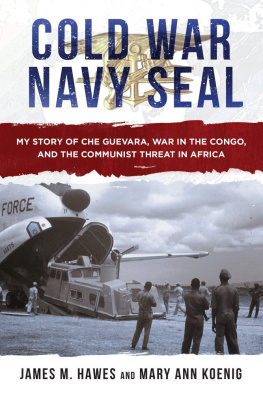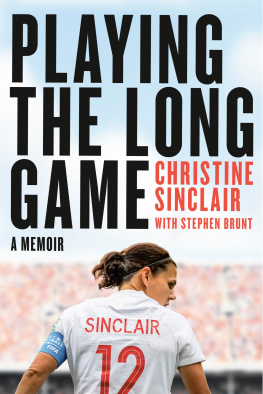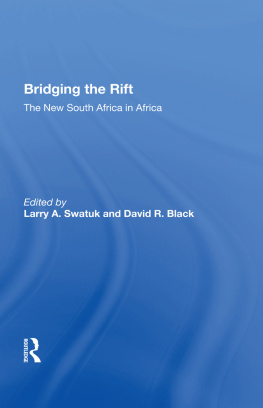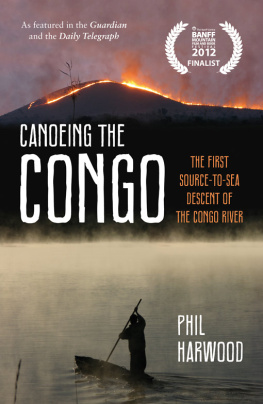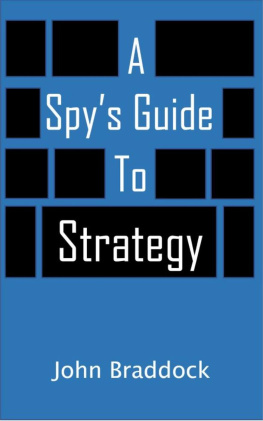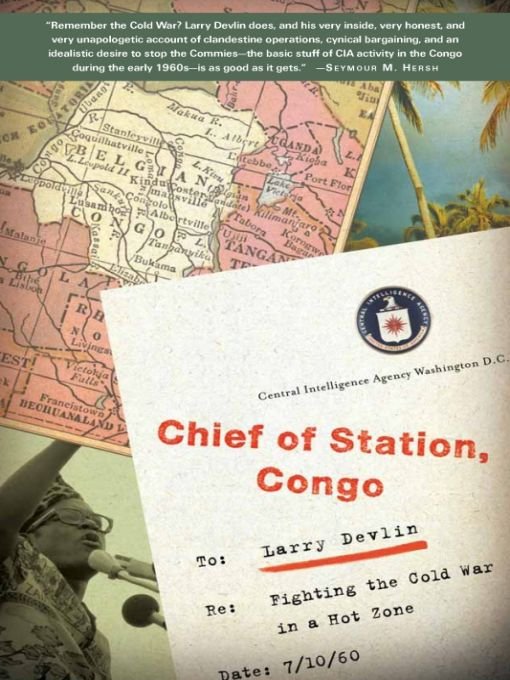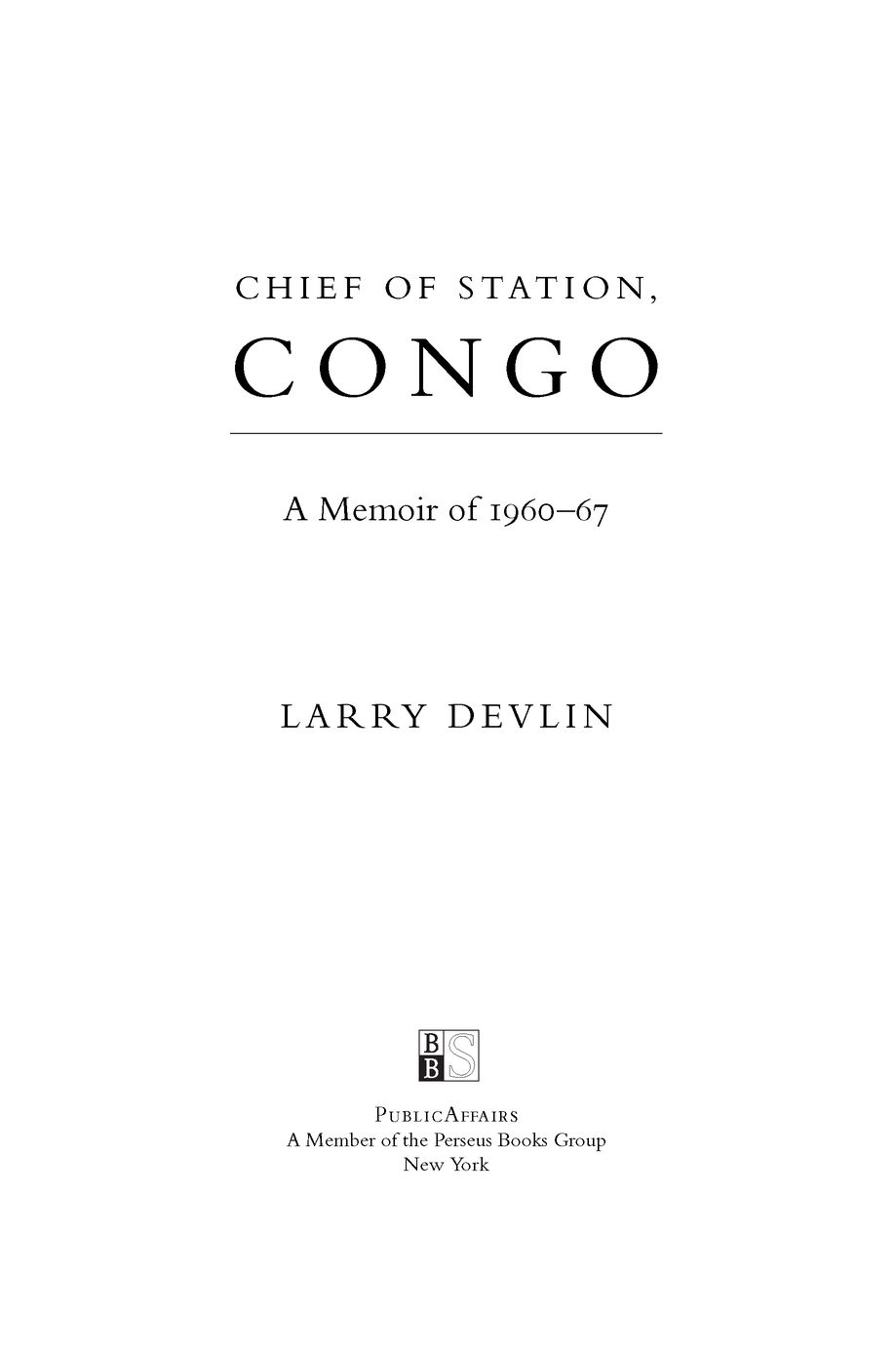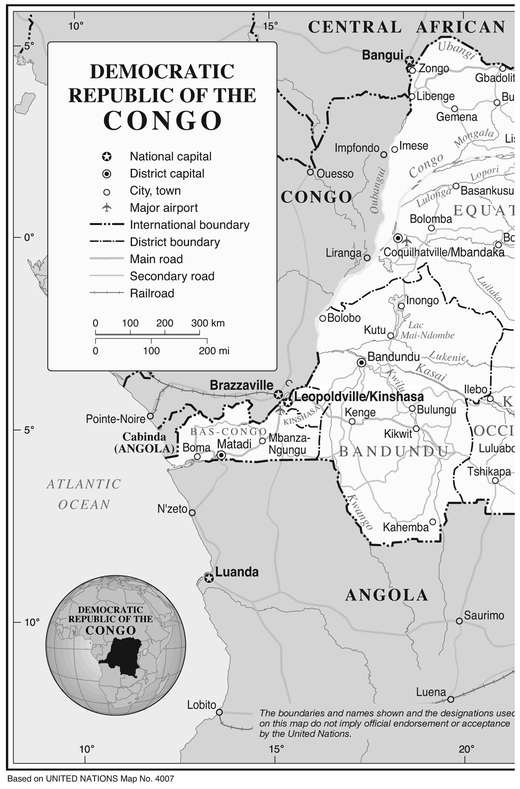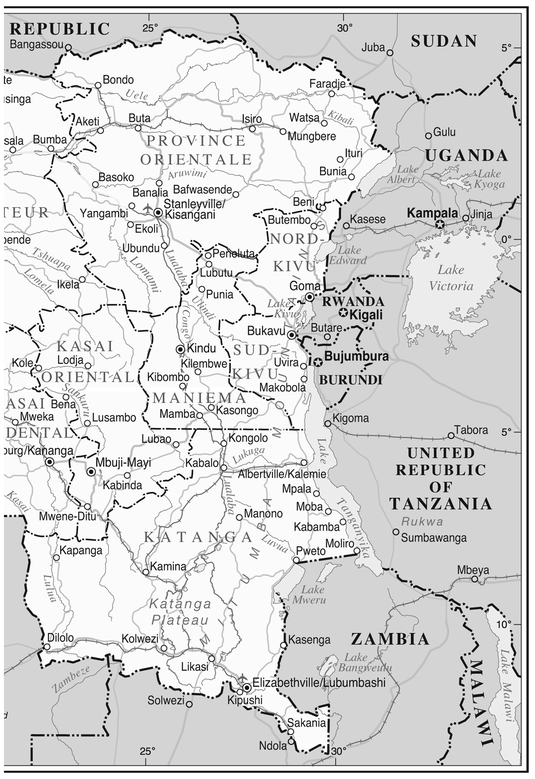Table of Contents
To Mary
PROLOGUE: CONGOLESE ROULETTE
I FIRST HEARD OF MY APPOINTMENT as Chief of Station in the Congo while I was in Washington, late August 1959, when the capital was dozing in the sultry summer heat. My initial impression was that though the Congo seemed to be a quiet, almost unknown diplomatic backwater, it would provide an excellent opportunity to meet and, hopefully, to recruit Soviets. A colleague of mine with personal experience in what was then the Belgian Congoa vast African country still under colonial ruleadvised me, There are a lot of black-tie dinners. Take two tropical dinner jackets so you can have one at the cleaners at all times. And, by the way, youll be on the golf course by two oclock every afternoon.
Well, it didnt turn out quite like that.
I arrived on July 10, 1960, ten days after independence from Belgium and five days after the Congolese army had mutinied, throwing the country into chaos. My first tastebut by no means the lastof the lawlessness and arbitrariness of daily life in this newly born African giant came just a few days later.
I was picked up by a band of mutinous soldiers on the prowl in the center of Leopoldville (now Kinshasa). They took me to a dilapidated room at their base located between the European residential part of the city and the Congolese slums and began to question me in a rudimentary sort of way. My protests that I was a diplomat, and thus immune from arrest, were about as useless as tits on a boar.
It was hot and stuffy in the room. Five soldiers were slumped against the grimy walls smoking marijuana, laughing, and talking in Lingala, one of the four main native languages and the official language of the Congolese army. A tall, rangy fellow in filthy pants and shirt detached himself from the group and came over to me. He jerked a battered chair away from the wall and straddled it. The room grew very quiet. The tall soldier reached down and slowly took off his boot. The others were grinning, nudging each other.
Come over here and kiss my foot, flamand, he said in broken French. Flamand, or Fleming, was the worst insult the Congolese felt they could use against a white man.
I had already seen this scenario played out to its own unique Congolese conclusion. The soldiers would stop a white person on the street and order him to get down on his knees and kiss a proffered foot. Once the man bent down, a boot would go into the back of his head, smashing his face into the pavement. If the victim didnt initially obey, hed be clubbed over the head with a rifle butt or beaten in some other manner. If you ever wanted a definition of a no-win situation, that was it.
I made up my mind not to kiss that damned foot, and started trying to talk my way out of my predicament. I also started to sweat. The tall soldier and his scruffy comrades let me spar briefly with them before the mood became belligerent.
Ever played Russian roulette? the tall soldier asked.
He pulled a revolver from his holster, showed it to me, and ostentatiously turned his back so I couldnt see what he was doing. He appeared to remove some bullets, spun the chamber twice, and held out the gun to me. I shook my head. The other soldiers were watching me with grim satisfaction.
Then I will do it for you, the tall soldier said. He got up from his chair and put the gun to my head.
I was damned scared, but I was also damned furious. Merde! I said.
He pulled the trigger. I heard the pistols hammer click as it hit an empty chamber. Relief flooded through me. But I was anxious not to show it and give the soldiers the satisfaction of knowing that they had scared the hell out of me.
Then, to my horror, the tall soldierwithout spinning the chambercocked the gun again.
Now, you kiss my foot, he said grinning. The other soldiers watched with sour, sullen expressions.
My heart was racing ninety miles a minute. Merde! I shouted as he pulled the trigger.
The hammer clicked again on an empty chamber, but this time I was not euphoric. I now believed this sadist would kill me. I made a half-hearted effort to remind him of the Geneva Convention concerning the treatment of prisoners, and cited the fact that diplomats cannot be arrested, let alone shot to death by soldiers playing games.
Just kiss my foot, patron, and you have nothing to fear, he said. Two chances wasted.
I shook my head. There was a roaring sound in my ears and the blood pounded at the back of my head. I heard the hammer click three, four, five times on an empty chamber.
Last chance, patron, he teased. Kiss this foot.
I wanted to run. I wanted to fight. I certainly did not want to die. At that point, I was undoubtedly a little crazy. I remember yelling Merde! at the top of my lungs as he pulled the trigger for the sixth and last time.
It took me a while to realize that what I was hearing was a room full of Congolese soldiers roaring with laughter. The tall soldier had removed all the bullets from his revolver, and I was the only one not in on the joke. Congolese roulette.
Suddenly, they were my friends, laughing, and slapping me on the back. They offered me a drink from a bottle of wine they had scrounged from somewhere, and we were all big buddies. When we had finished the wine, they dropped me near the Memling Hotel in the center of the city and went off to look for more fun.
It was a far cry from black-tie dinner parties and leisurely golf. Same place, but a totally different world.
I GREW UP IN SAN DIEGO in southern California, my father an army colonel who fought in World Wars I and II and my mother a schoolteacher. Both were extremely patriotic. I enlisted in the army in World War II, rose through the enlisted ranks, attended officers candidate school, and reached the grade of captain serving in the Mediterranean and European theaters. While in Corsica, waiting to land to southern France, I met my first wife, Colette Porteret, now deceased. She was a second lieutenant in de Gaulles Free French army, having escaped from France to join the Free French forces, where she commanded a forward ambulance platoon. After the war, we were married in France and returned to the United States where I completed my undergraduate studies before going on to Harvards graduate International Relations program, a precursor to the Kennedy School. I obtained my masters degree and had plans to continue with a doctorate.
Those plans changed dramatically and definitively when Professor William Y. Elliot invited me and three other students to his office in Cambridge one wintry Sunday afternoon in November 1948. There we met McGeorge Bundy, who was secretary of the Council on Foreign Relations in New York and later became national security adviser for Presidents Kennedy and Johnson. Bundy made a convincing argument that the newly formed Central Intelligence Agency in Washington could play a key role in thwarting Moscows ambitions for world domination without having to resort to open warfare in the nuclear age. The Cold War, for better or worse, was under way and, to my mind, was better than a hot one, which I knew something about. Bundys argument was in line with my own convictions and I joined the Agency shortly thereafter. After serving in Europe under non-official cover, several years in CIA headquarters in Washington, and a tour in Brussels, I was posted to Leopoldville, in the Congo, as Chief of Station.


